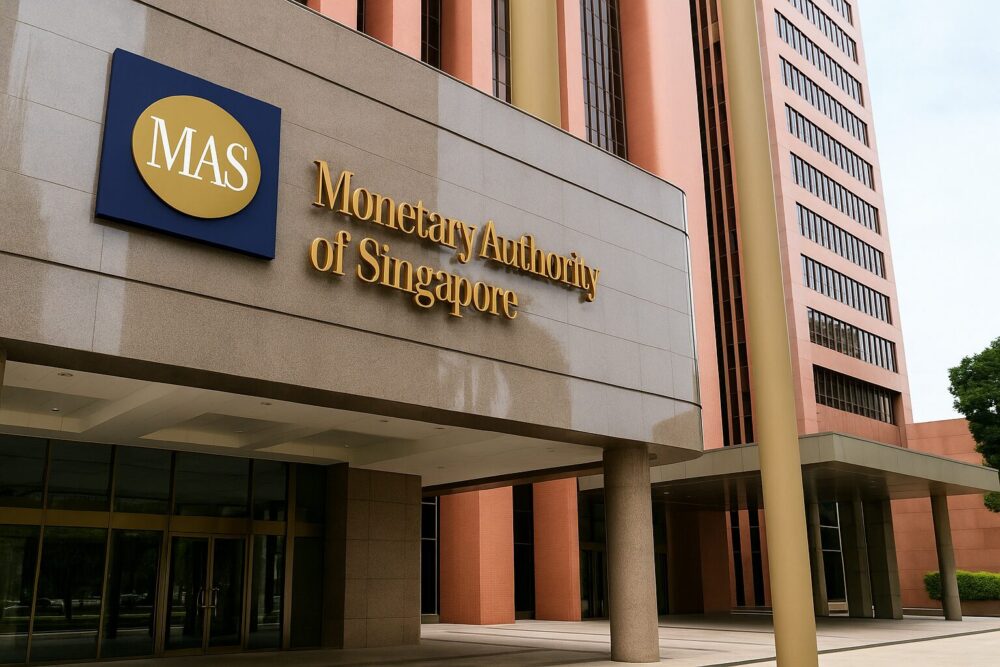The Monetary Authority of Singapore (MAS), the central bank and financial regulatory authority of Singapore, has taken a decisive step to tighten regulatory oversight of its rapidly evolving cryptocurrency sector. The MAS has directed unlicensed crypto service providers to halt all overseas operations by June 30, 2025.
The directive was issued by the Monetary Authority of Singapore (MAS) on Friday, and it follows months of public consultation aimed at enhancing regulatory clarity and safeguarding retail investors.
In a detailed response to the proposed regulatory approach, MAS stated that only crypto firms with formal approval under the Payment Services Act, specifically those that have applied for and received in-principle or full licenses as Digital Token Service Providers (DTSPs), are allowed to continue serving overseas clients.
In contrast, firms that have not received such approvals must cease all overseas digital token activities, regardless of whether these services are delivered directly or through intermediaries.
The regulator emphasized that relocating operations abroad while continuing to manage them from within Singapore will be deemed a breach of compliance and met with enforcement actions.
Singapore-based crypto firms should not shift their base operations overseas
MAS made it clear that crypto entities cannot use workaround strategies, such as outsourcing or shifting nominal operations to other jurisdictions, to evade the newly enforced rules.
This clampdown reflects Singapore’s broader push to build a safe and trusted digital asset ecosystem, even as public interest in cryptocurrencies continues to surge across the island nation.
In its response to industry feedback, MAS explained that the unregulated provision of cross-border crypto services poses heightened risks of misconduct and consumer exploitation.
Moreover, the central bank rejected industry requests for a phased transition period, arguing that service providers have had ample time to prepare since the regulatory consultation process began.
By setting a firm deadline, MAS is signaling its intention to enforce high compliance standards without delay or ambiguity, reinforcing its commitment to financial stability.
MAS has also pledged to closely monitor operations that appear structured to circumvent licensing obligations, adding that suspicious arrangements will be actively investigated.
Singapore is experiencing a surge in cryptocurrency adoption
The regulatory tightening comes as Singapore experiences a notable rise in digital asset adoption, with the proportion of residents owning cryptocurrencies climbing from 24.4% in 2023 to 26% in 2024.
Usage is particularly high among younger demographics, where nearly 40% of Gen Z and millennial respondents reported owning or using digital assets, primarily for payments and e-commerce transactions.
Meanwhile, older users tend to rely on cryptocurrencies for peer-to-peer transfers, especially when sending funds across borders to friends or family members.
Despite the increased usage, a significant portion of the population still finds digital assets challenging to use, with more than 60% citing complexity and over half highlighting limited merchant acceptance.
However, as transaction volumes grow and consumer interest accelerates, Singapore’s role as a regional hub for regulated digital finance is becoming more pronounced.
MAS’s latest move underscores the city-state’s strategy of combining innovation with robust oversight to promote a sustainable and secure crypto environment.
While the new rules may push some smaller or non-compliant firms to exit the market, they are expected to strengthen overall market integrity and protect retail investors from unscrupulous practices. Ultimately, Singapore’s clear regulatory direction is likely to attract more responsible digital asset players who are willing to align with its high standards and contribute to a credible fintech ecosystem.

